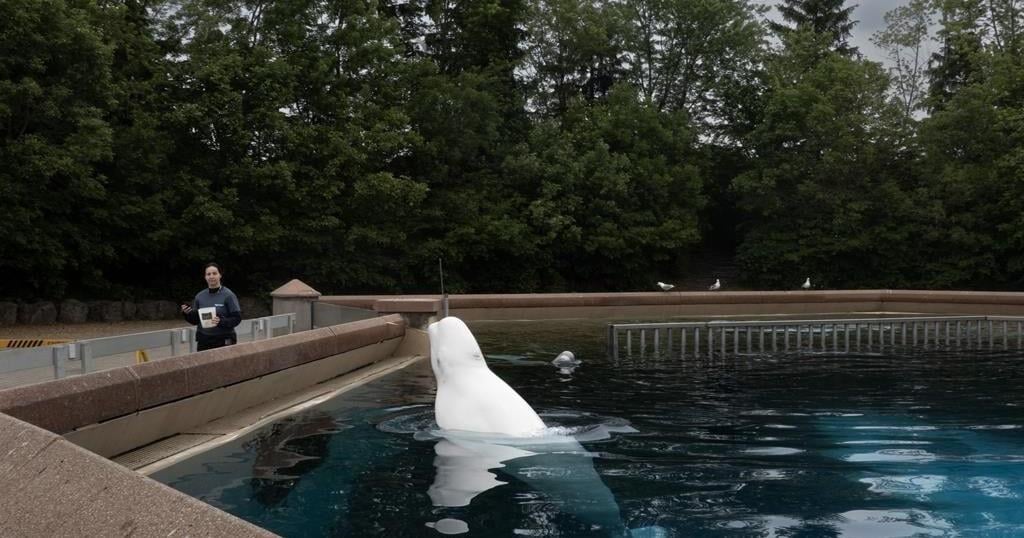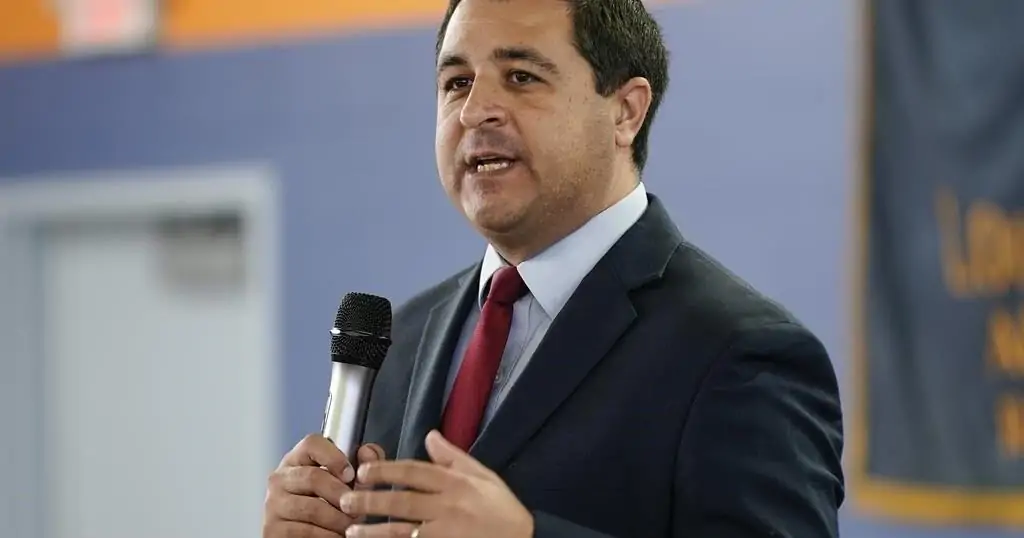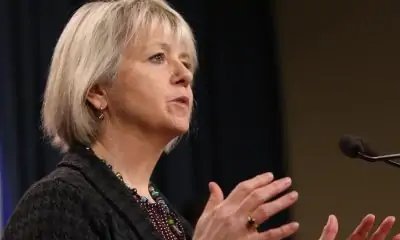TORONTO – Three weeks after the death of another beluga whale at Marineland, the Ontario government is speaking publicly about its ongoing investigation of the park, saying water troubles are under control after a recent investment.
The province’s chief animal welfare inspector told The Canadian Press that to her understanding, marine mammal deaths at the tourist destination in Niagara Falls, Ont., have not been related to water quality.
That’s despite the fact the water did not meet the standard of care until recently, Melanie Milczynski said in a rare interview.
She offered the first glimpse inside the government’s four-year-long probe of Marineland, the only place in Canada where whales are still in captivity.
Five belugas have died at the park in the last year and 17 have died since late 2019, government records show. Three other belugas sold to a Connecticut aquarium in 2021 have since died.
Kiska, the country’s last remaining killer whale in captivity, died in April 2023. One dolphin, one harbour seal, one grey seal, two sea lions and two Magellanic penguins have also died at the park in the past five years.
The most recent whale death has prompted renewed calls from opposition politicians for the province to explain what is happening, with the leader of the Ontario NDP saying the park should be shut down entirely.
Marineland did not answer questions about the animal deaths, and instead twice responded to recent queries with accusations that journalism published by The Canadian Press was driven by its reporter’s “personal animal rights beliefs and activism.”
The park has previously said that the animal deaths are part of the cycle of life, and defended its treatment of the animals. It has also said that water has nothing to do with the deaths.
The province’s “proactive team” of inspectors, which is a specialized unit of 10 inspectors that examine zoos and aquariums, test Marineland’s water weekly, Milczynski said.
They have visited the park 205 times since the province took over animal welfare enforcement from the Ontario Society for the Prevention of Cruelty to Animals in 2020, she said.
She said Marineland also tests its water regularly and the results match those of the government, which show a “significant improvement” in quality.
Milczynski said that at one point in time, the park did not meet the standards for water quality. She did not specify when that was.
In 2020, Animal Welfare Services launched an investigation into the park. The following year, it declared that all marine mammals in the park were in distress due to poor water quality and ordered Marineland to fix the issue. Marineland appealed the order while denying its animals were in distress, but later dropped that appeal.
Milczynski said she does not know what the rationale behind that order was at the time, but the marine mammal deaths do not appear to be related to the water problems at the park.
“From the information that I was given, I don’t believe so,” said Milczynski, who became chief animal welfare inspector in March.
She said “the standards are being met” when it comes to water quality.
“It really is a full time job to monitor the quality of water in a drinking water system that the municipality provides, in a swimming pool that’s open to the public and then similarly with the facilities that are at Marineland,” Milczynski said.
“They’ve invested in some significant technology that will help them do that, and we’ve been working with them and learning from them what that technology does. And because of that it’s within the acceptable limits, but because it’s a new system, we want to have the confidence that the system is going to do what it’s supposed to do every day.”
The Ministry of the Solicitor General, which oversees the animal welfare inspectorate, said 32 orders have been issued since 2020, and four of them are currently open.
An order related to water quality, or “life support systems” as Milczynski called it, remains open.
A second open order calls for proper record-keeping on “the treatment” of marine mammals, which the park is working on, Milczynski said.
She said Marineland knows the cause of death of the animals but the province is not at liberty to discuss its findings.
Asked for details about what caused the most recent deaths, Marineland said it would no longer communicate with a reporter from The Canadian Press.
“A fair disclosure of your personal animal rights beliefs and activism is entirely lacking from your stories,” the park said in an email.
“You have consistently displayed an inability to professionally ‘report,’ instead advancing inferences and false allegations in aid of your personal views. You have consistently failed to report known facts or make necessary inquiries if doing so does not advance your ‘position.’ This may be effective for your ‘purposes,’ but it leaves the public misinformed and uninformed. It is not reporting.”
The park went on to suggest that questions from The Canadian Press “appear to relate solely to ticking a ‘box’ to say you inquired.”
“We do not expect you will print any of this,” it said.
In March, Marineland responded to questions about the deaths of two belugas that month. They said both died due to stomach torsion and it was “not possible to operate on beluga whales to correct that issue.”
“Because Marineland’s population of whales is the largest in the world, greater than all in North America, health issues typical to the population happen here,” said a written statement from Marineland at the time.
“All the whales are under constant weekly supervision and oversight by the government regulator and cared for daily by in-house vets and numerous external consultants. The reality is that all animals eventually die from one cause or another whether in the wild or captivity.”
News of the latest beluga death prompted calls from opposition leaders and animal rights activists for the province to do more at the park.
“It’s disgraceful. They should have shut this place down years ago,” said New Democrat Leader Marit Stiles.
“I think the government should be taking action and I can assure everyone that if — when — we form government, we will.”
Liberal Leader Bonnie Crombie said the government needs to be held accountable
“This is a constant theme with this provincial government that there is no accountability because there is no transparency in anything they do,” Crombie said.
“Let’s have some transparency. What is the plan to ensure these beautiful mammals are being cared for properly and that they’re not dying?”
In the summer of 2023, a Canadian Press reporter and photographer visited Marineland. Staff said there were 37 belugas in the park at the time. Shortly after the visit, Marineland banned the reporter from its property.
After the deaths over the past year, it is believed that 32 belugas remain. Drone footage shot by advocacy group UrgentSeas showed 32 belugas at the park in mid-October.
Recent footage the organization published on social media shows one of the whales being transported by a crane and rejecting fish from a trainer.
“As soon as you need to start physically intervening to feed the animal, the situation is dire,” said the group’s co-founder Phil Demers, a former trainer at the park. He said he believes the whale is ill.
Marineland said in early 2023 that it was looking for a new owner, and has not said what it will do with the remaining animals once the park is sold. This past summer, the park was open for just two months, instead of a usual five-month run, with few animals on display.
Owner Marie Holer died last month. At the time, the park said a succession plan had been put in place, but it did not offer details.
Ontario has plans to turn the Niagara region into a “Las Vegas of the north.” The provincial tourism minister has said the park is not necessarily part of its vision.
“Whatever it is the government is doing there now, it’s not working,” said Demers.
“Are they just waiting for all the whales to die?”
This report by The Canadian Press was first published Nov. 8, 2024.



















